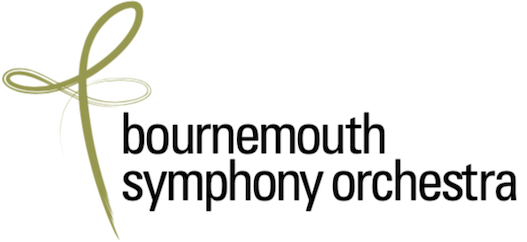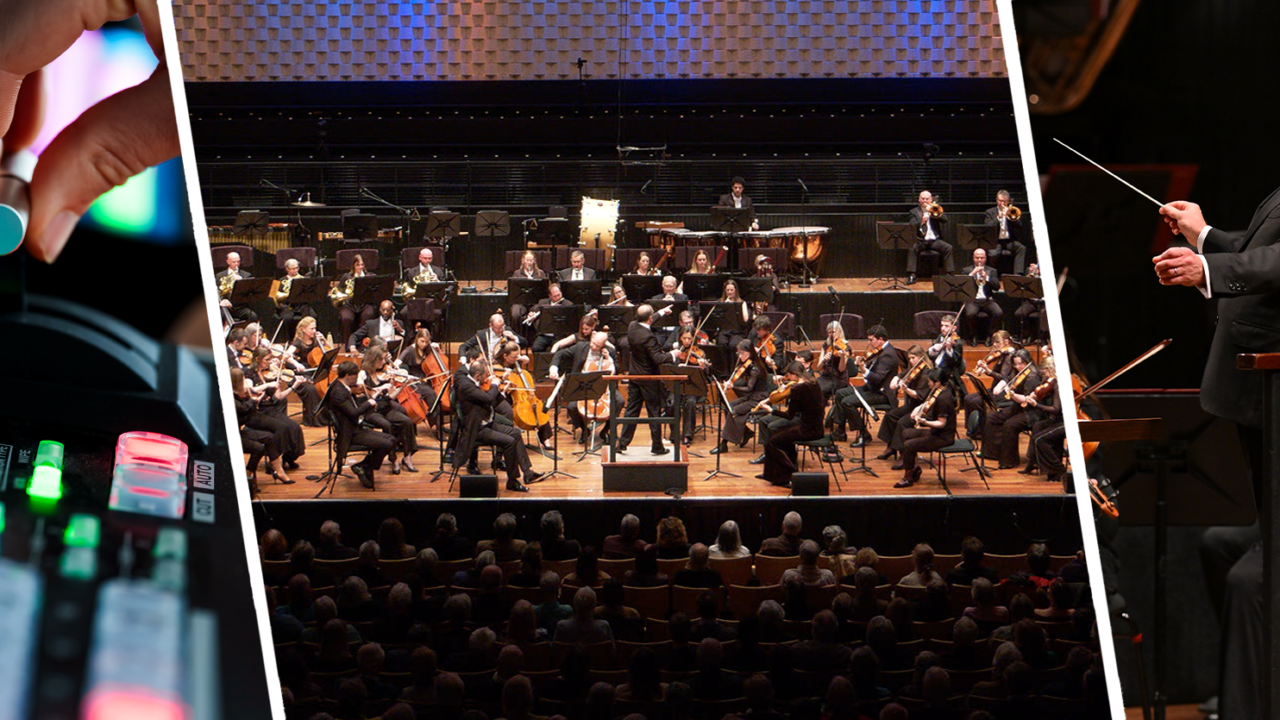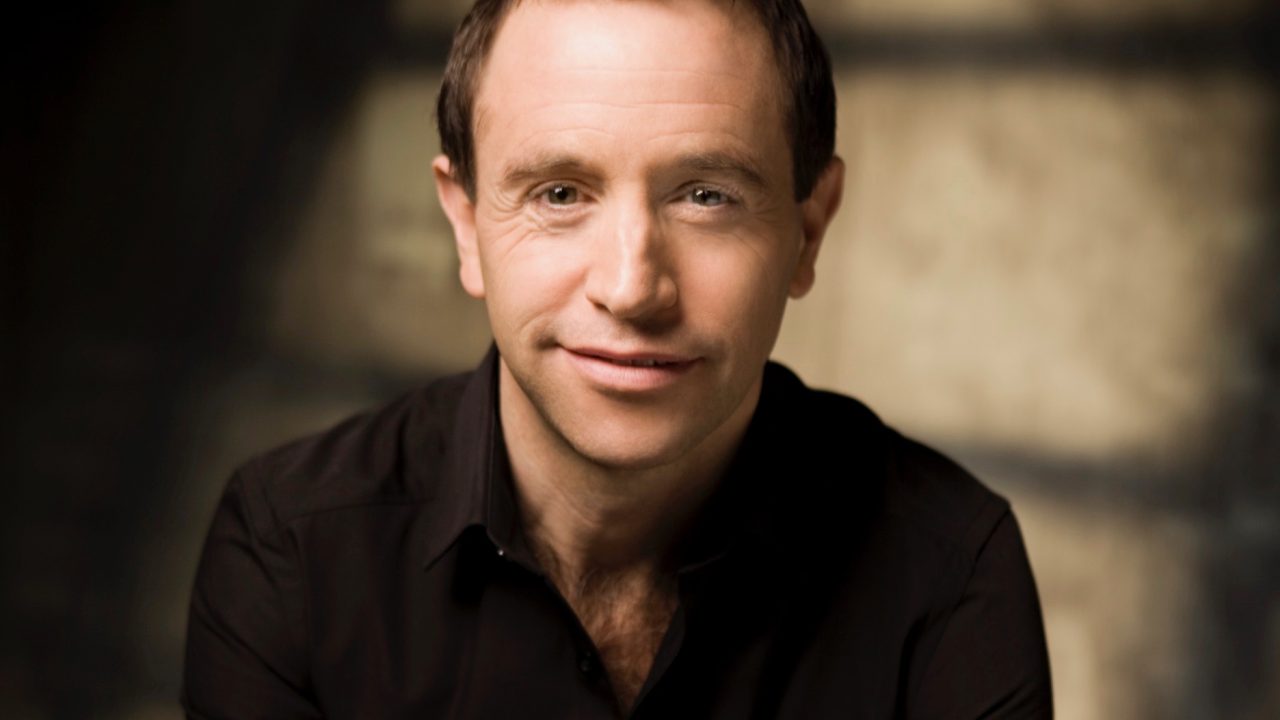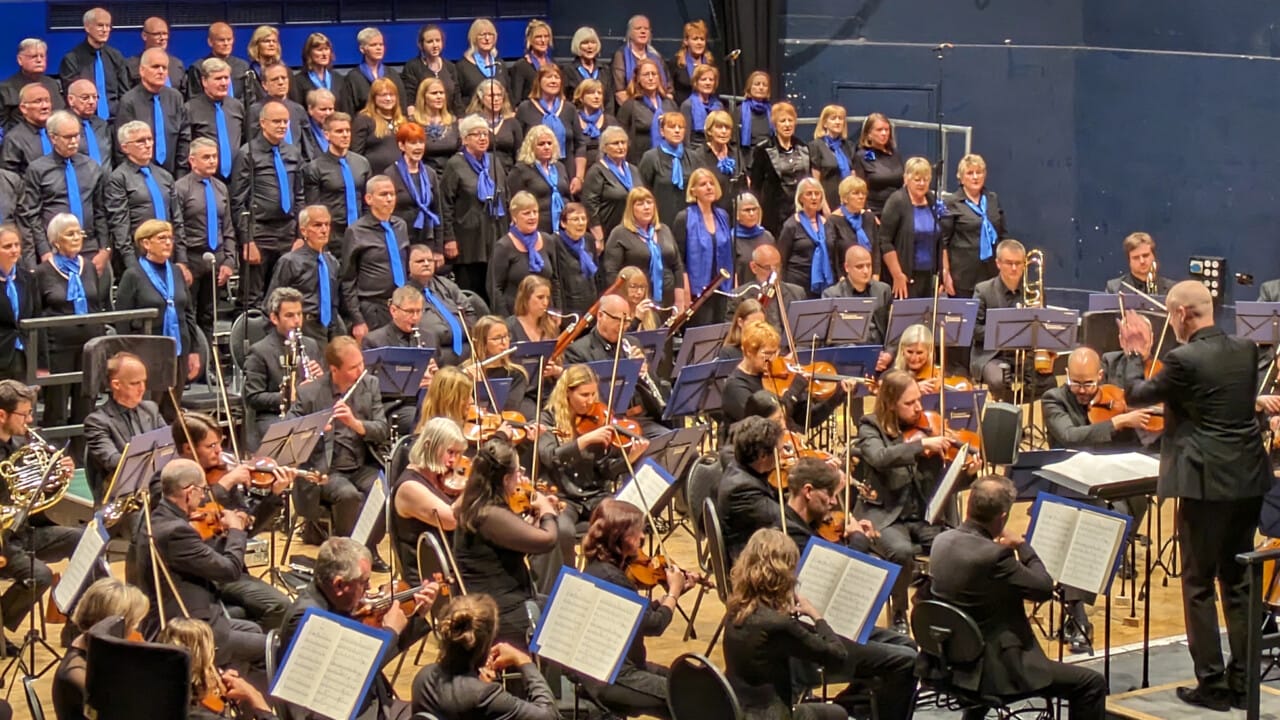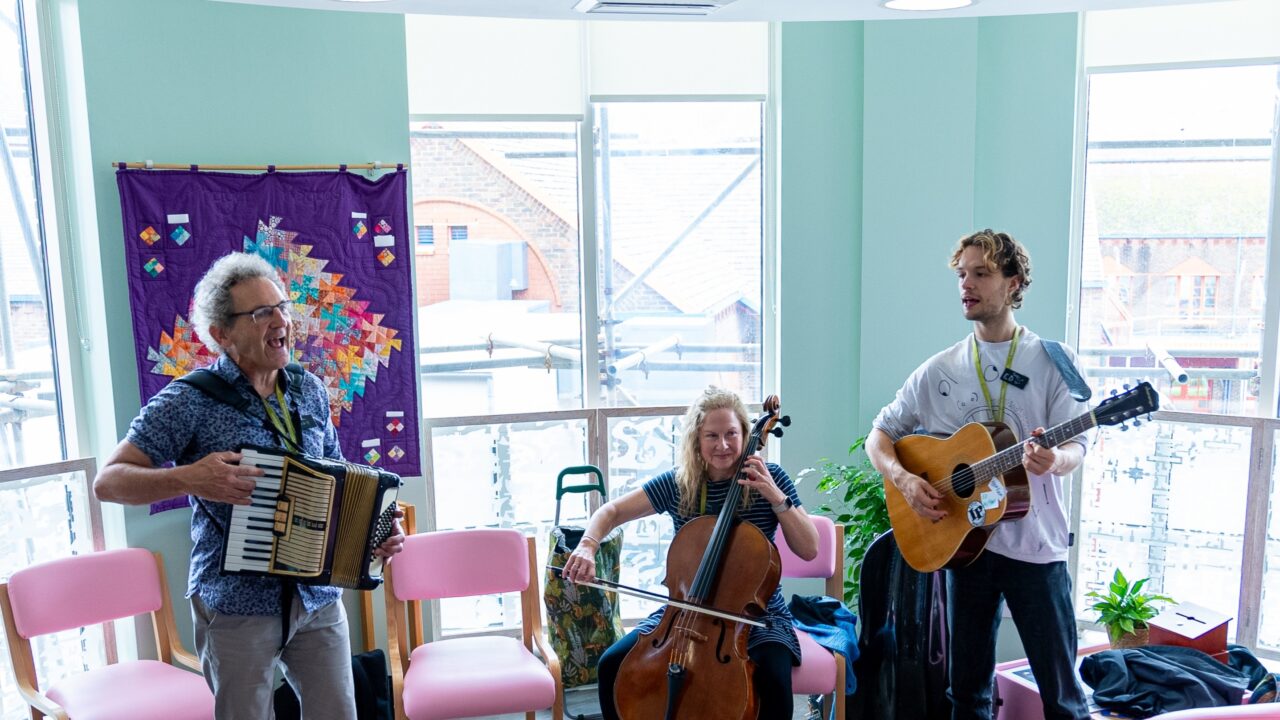This timeline charts the major events and achievements of the BSO alongside historic world events. The last 125 years has not just been monumental for the BSO, the amount of development and change the world has seen in this time is also staggering.
22 May 1893: an unknown 24 year old conducted the first performance of his Bournemouth band with around 30 musicians at the Winter Gardens. The verdict of a newspaper reporter “It seems as if the new band will catch on.” Dan Godfrey was chosen to lead the new Bournemouth Municipal Orchestra
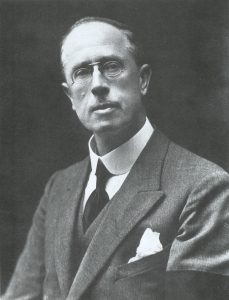
Sir Dan Godfrey
1893: New Zealand becomes the first country to give women the vote
1895: Symphony concerts begin with a series of forty. Uniforms replaced by formal concert dress about this time. The Orchestra now the first permanent fully salaried municipal orchestra in the country and one of the few permanent symphony orchestras in England. (The Hallé was another)
1901: Queen Victoria’s Funeral
1903: The Wright Brother’s first flight
1908: Edward Elgar conducted a programme of his own music (he returned a number of times)
1909: American Robert Peary becomes the first person to reach the North Pole
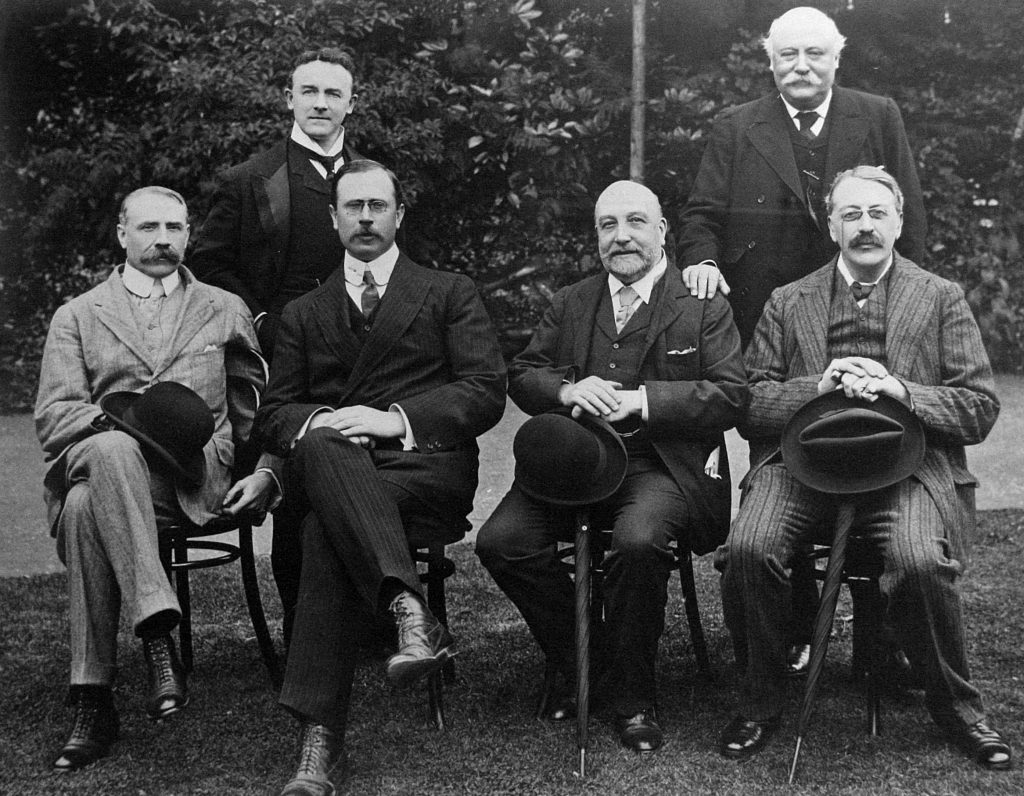
1910 sees a notable line up: (L to R) Edward Elgar, Edward German, Dan Godfrey, Alexander Mackenzie, Hubert Parry and Charles Villiers Stanford
1911: The Orchestra made its first trip to London, playing as Crystal Palace as part of the Festival of Empire
1912: The Titanic sank
1914: The Orchestra released its first record, 78rpm recordings on the HMV label
1914: The start of the First World War
1918: The Orchestra celebrated its 25th anniversary in the midst of the Great War, during the war audiences dwindled but the Orchestra played on
1918: End of the First World War
Women over 30 granted the right to vote in Britain
1919: First tour – to Pontypridd, Cheltenham and Weston-Super-Mare. Seventeen concerts given in eight days. Coach driver loses way in fog!
1924: The BMO’s first local radio broadcast New marketing initiatives to ease financial situation include ‘sixpenny proms’ with audience requests, and outdoor tea dances on summer afternoons
1928: Walt Disney introduces character of Mickey Mouse in “Steamboat Willie”
1929: The Bournemouth Pavilion was opened by the Duke of Gloucester providing a new venue for the Orchestra
1929: The Wall Street crash in America sparks the Great Depression
1930: The planet Pluto discovered by Clyde Tombaugh
21 May 1933: The Pavilion played host to the fortieth anniversary concert which was broadcast across Britain
1934: Sir Dan Godfrey retires; he is replaced by Richard Austin. This is also the year that Elgar, Holst and Delius died
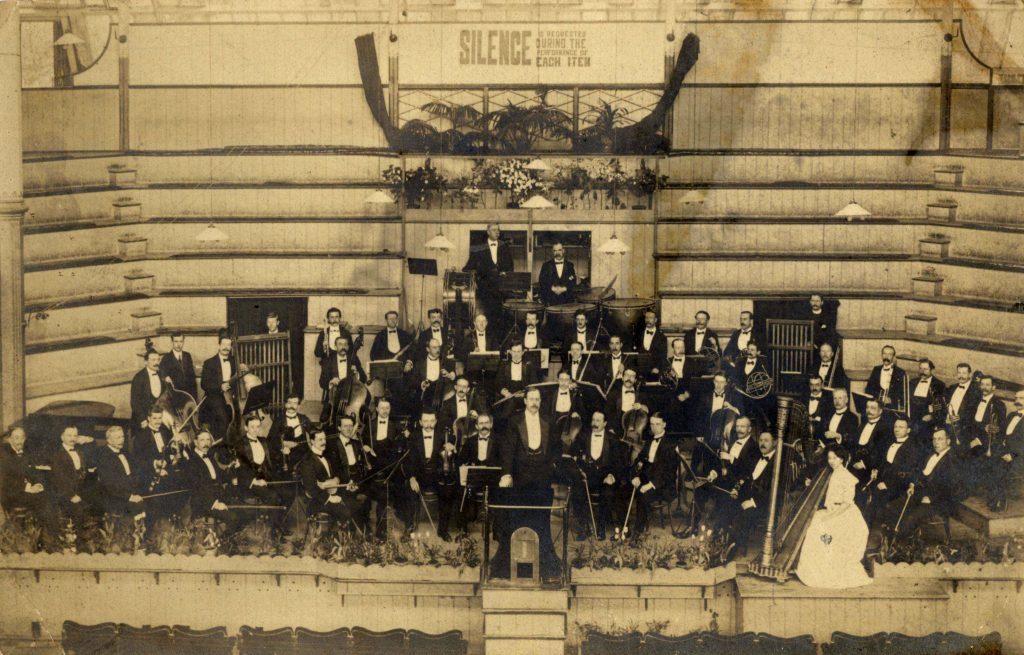
Dan Godfrey conducts the Orchestra at the Winter Gardens
1936: King Edward VIII Abdicated
1937: The Orchestra has grown to 61 Players
1939: Start of the Second World War
1939: At the March Festival the BMO and the Municipal Choir performed Brahms’ Requiem
The outbreak of War in September 1939 had a huge impact on the Bournemouth Municipal Orchestra, there were just 24 players left
1940: Austin resigned, disagreeing with the Corporation’s policy of cutting down the Orchestra. Montague Birch picked up the baton and the small group continued
1940: Winston Churchill becomes Prime Minister
1943: The BMO celebrated its Golden Anniversary. Birch and Sir Adrian Boult, conductor of the BBC Orchestra, shared the conducting at two celebratory concerts on Sunday 23 May
1945: The End of the Second World War
1947: Rudolf Schwarz takes over as Musical Director
1947: India gains independence from Britain
1948: The BMO perform at the Royal Albert Hall, their first performance in London since 1911
1950/51: Schwarz left the Orchestra for another position and was replaced by Charles Groves
1952: The reign of Queen Elizabeth II begins
1954/55: The Bournemouth Municipal Orchestra is renamed the Bournemouth Symphony Orchestra. It was no longer a municipal orchestra but the Council continued to support it, as it does today
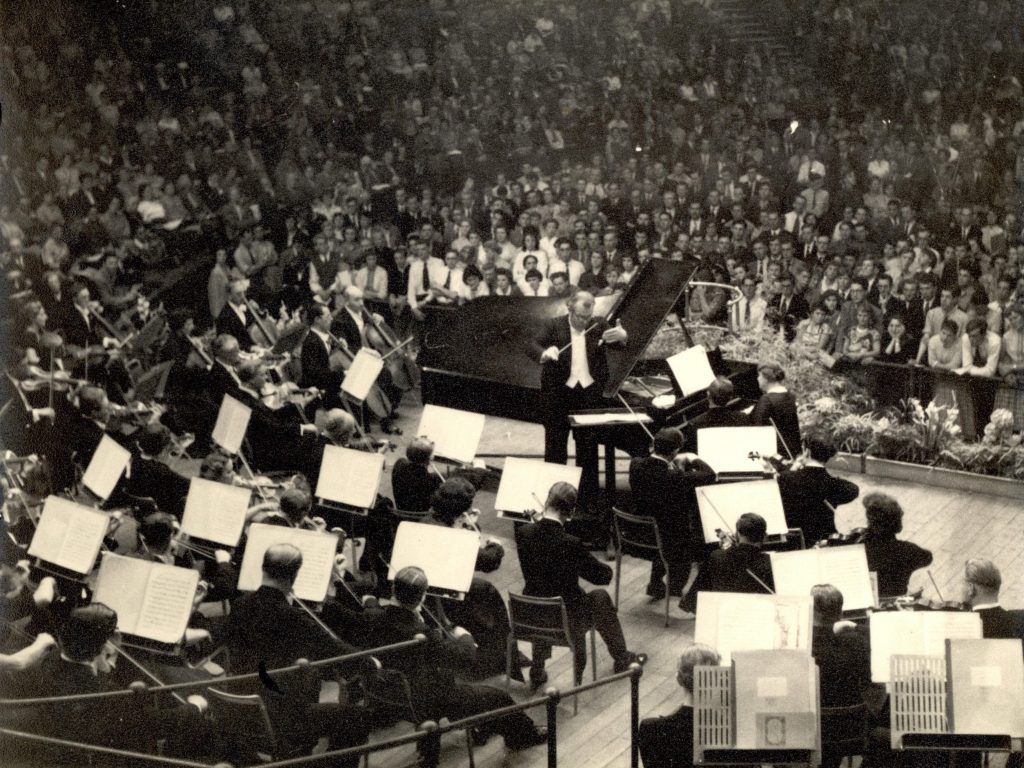
Charles Groves conducts the Orchestra at the BBC Proms
1958: Groves was awarded the OBE
The Orchestra has 75 players
1961: Yuri Gagarin becomes the first man in space
1961: Constantin Silvestri replaced Groves as Principal Conductor
1963: The Assassination of President John F Kennedy
1965: The BSO made its television debut in Winchester Cathedral, playing two movements from Wagner’s Parsifal
The BSO toured Europe for the first time, seeing concerts in Poland, Czechoslovakia, East and West Germany and Holland
1966: The BSO played before a vast audience, including the Queen and Prince Phillip, at the Royal Albert Hall
1968: The Bournemouth Sinfonietta came into being
Brendan O’Brien became leader of the BSO
1969: Neil Armstrong takes the first steps on the moon
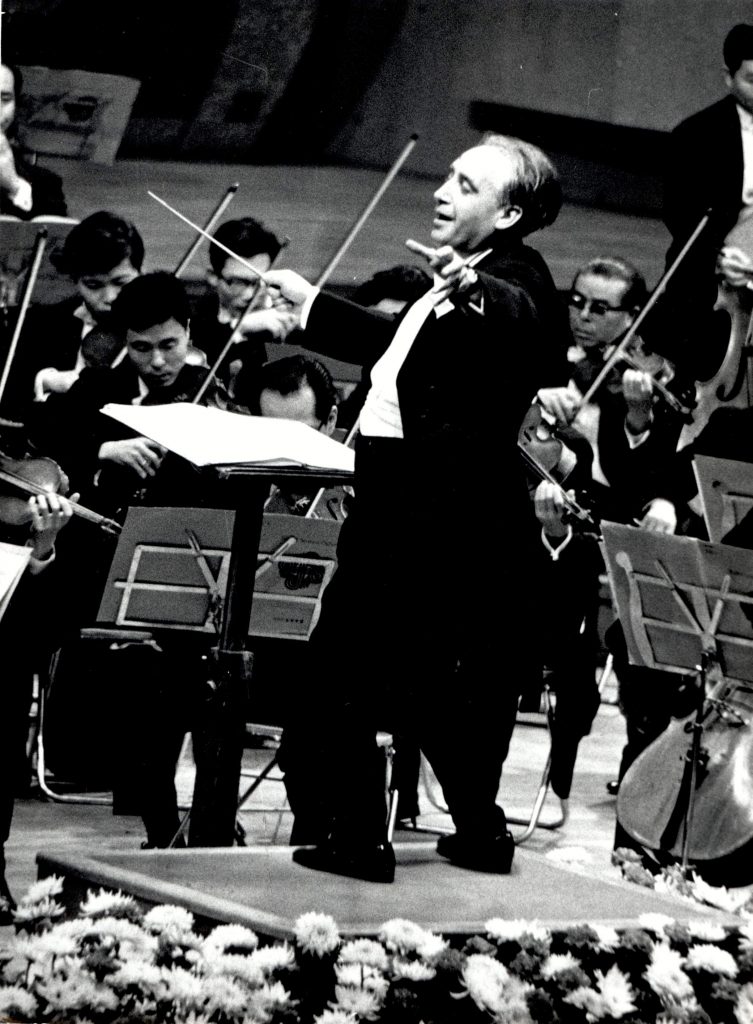
1969: Silvestri passed away at the age of just 55. George Hurst took over responsibility for many concerts under the title of Artistic Adviser
1970: The Beatles break up
1972: Paavo Berglund became Principal Conductor of the BSO
1973: Billy Jean King beats Bobby Riggs in the “Battle of the Sexes” tennis match
1974: President Nixon becomes the first president in US history to resign from office
1975: Edward Heath, a year after he steppled down as Prime Minister, conducted the BSO as the gala concert for the ‘Housing the Orchestra’ appeal to provide a home within the new centre for the arts at Poole
1976: The BSO did a tour of Finland, which featured performances at the Helsinki Festival and the world’s northernmost concert venue
1978: The BSO played 10 concerts at the Hong Kong Festival under Berglund
The new Poole Arts Centre opened and the Western Orchestral Society moved its offices from Gervis Place
1979: Margaret Thatcher becomes the first female Prime Minister
1979: The BSO gained a new Principal Conductor, Uri Segal
HM the Queen and Prince Phillip dropped into a rehearsal before an invited audience as the Wessex Hall, as part of a visit to Poole
Friends of Bournemouth Symphony Orchestra was formed
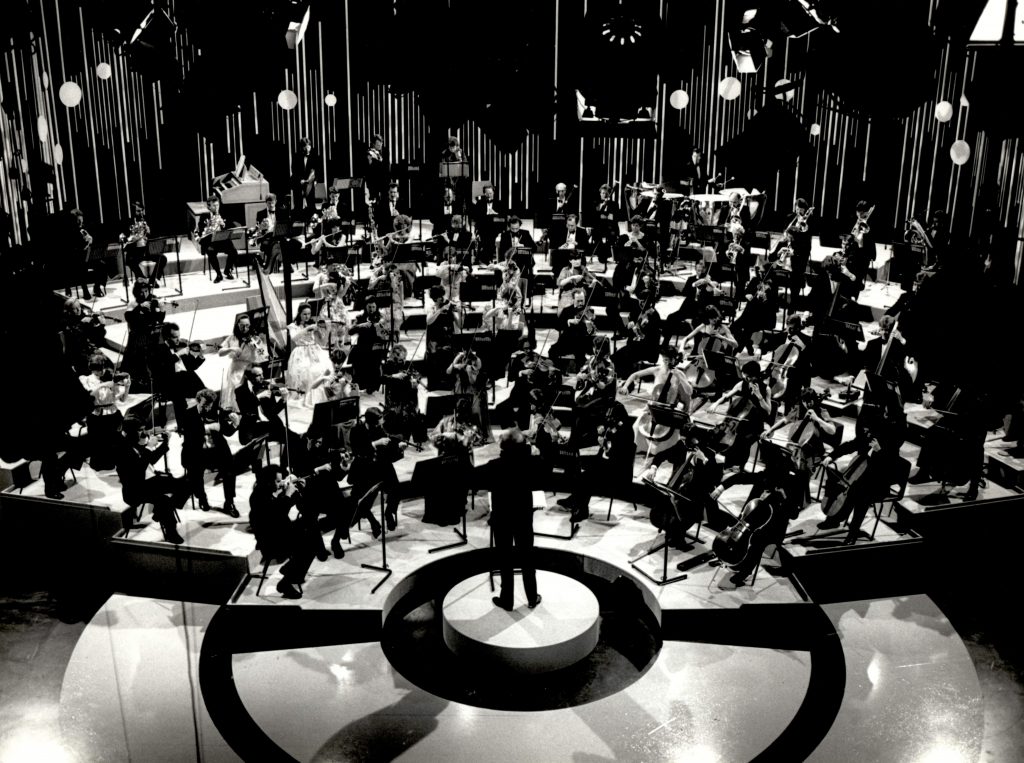
Uri Segal conducting the BSO during a Southern Television Recording
1981: The BSO and Bournemouth Sinfonietta were chosen to make recordings on behalf of the town as an official wedding present for Prince Charles and Lady Diana Spencer. The record, which included a rendition of Tchaikovsky’s 1812 Overture, was put in a case, mounted in goatskin and calf-lined by a specialist booked binder before it was taken to Buckingham Palace
1981: Prince Charles, heir to the British throne, marries Lady Diana Spencer at St Paul’s Cathedral
1982: Rudolf Barshai was appointed as Principal Conductor
1983: The BSO’s 90th anniversary was marked with a Royal Festival Hall concert, an EMI birthday disk of recording from 1930-1981 and a televised gala concert at the Bournemouth Pavilion
Bass Ten was born- a group of 10 BSO players who all played tunes on just one double bass. Initially formed as a fundraiser for the Friends of the Bournemouth Orchestras as a way to safeguard its future, the group soon found themselves in the Guinness Book of Records as well as numerous high-profile TV appearances, even setting a record of 18 people to play the one instrument on BBC1’s Record Breakers programme
1987: Educational and community initiatives were launched including the popular ‘Mega Music Shows’. Led by BSO conductor Richard McNicol, these Family Concerts held at the Winter Gardens saw hundreds of children playing alongside the professionals, 10 year olds invited to conduct the Orchestra and scores of youngsters even playing on BSO members’ valuable instruments
1988: One of the Orchestra’s most memorable appointments, Andrew Litton became the first American and the youngest Principal Conductor of the BSO
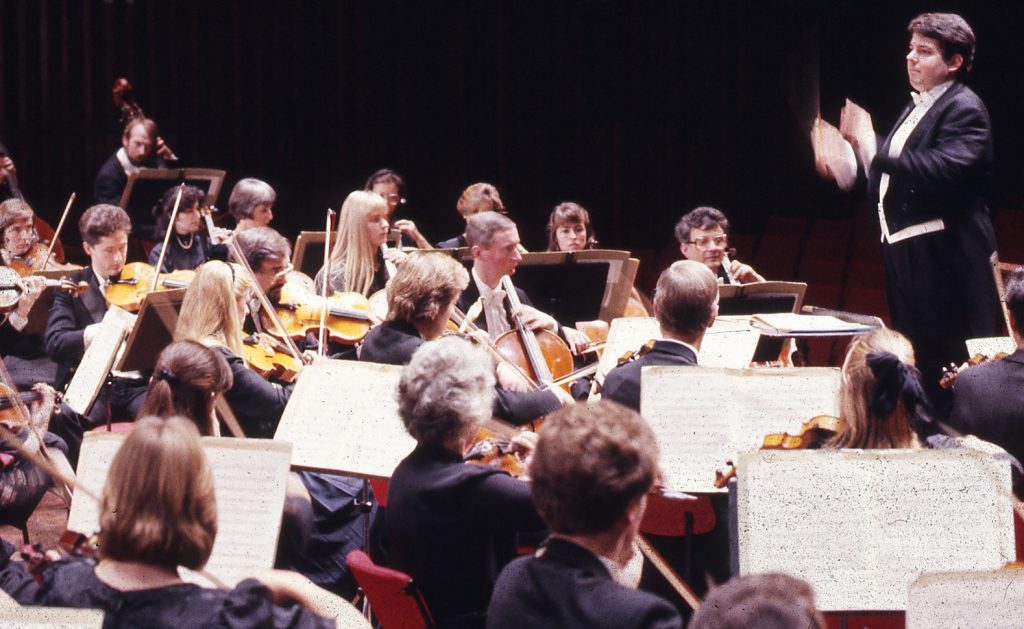
Andrew Litton conducting the BSO
1989: Fall of the Berlin Wall
1990: Nelson Mandela released from prison after 27 years of confinement
1992: The BSO held the first of its outdoor concerts; the Bolero in the Park concerts took place in Meyrick Park
1993: The BSO celebrated its 100th Birthday; the focal point of the year was the Mahler concerts with a memorable Resurrection Symphony at the Royal Albert Hall in May
1994: HRH Princess Alexandra became the patron of the BSO
The BSO undertook a hugely successful first tour of the USA
1994: The Channel Tunnel linking London and Paris is officially opened – the first land link between Britain and Europe since the last Ice Age
1995: Andrew Litton stepped down as Principal Conductor of the BSO. His relationship with the Orchestra was not to end with this chapter of his career, he regularly returns as a guest conductor and is the BSO’s Conductor Laureate
Russian-born Yakov Kreizberg became the new Principal conductor
1997: The BSO’s second tour of the USA saw the famous first appearance at New York’s Carnegie Hall
The BSO won its first GRAMMY with Bryn Terfel’s recording with the Bournemouth Symphony Chorus of Belzhazzar’s Feast
Brendan O’Brien retired after an incredible 29 years as leader
1998: The BSO linked up with its first corporate benefactor, the Portman Building Society
The BSO undertook a sell-out national tour with Lesley Garrett
1999: On a national level and in an unprecedented move, the Arts Council announced that every symphony orchestra in the country would have its debts written off
2000: Kreizburg’s tenure ended
2001: The BSO joined the Bach Choir for a gala concert at the Royal Opera House with HRH the Prince of Wales among the guests
2001: American Airlines flight 11 crashed into the North tower of the World Trade Centre
2002: Marin Alsop became the Principal Conductor of the BSO, making her the first woman to be Principal Conductor of a British Orchestra
The final concert in the Winter Gardens took place on 20 January. Its owners, Bournemouth Borough Council, had decided the venue had no long term future. It was soon to be closed and then demolished, despite a big public campaign to save it.
The BSO secured a new BBC Radio 3 partnership, ensuring regular broadcasts of BSO concerts
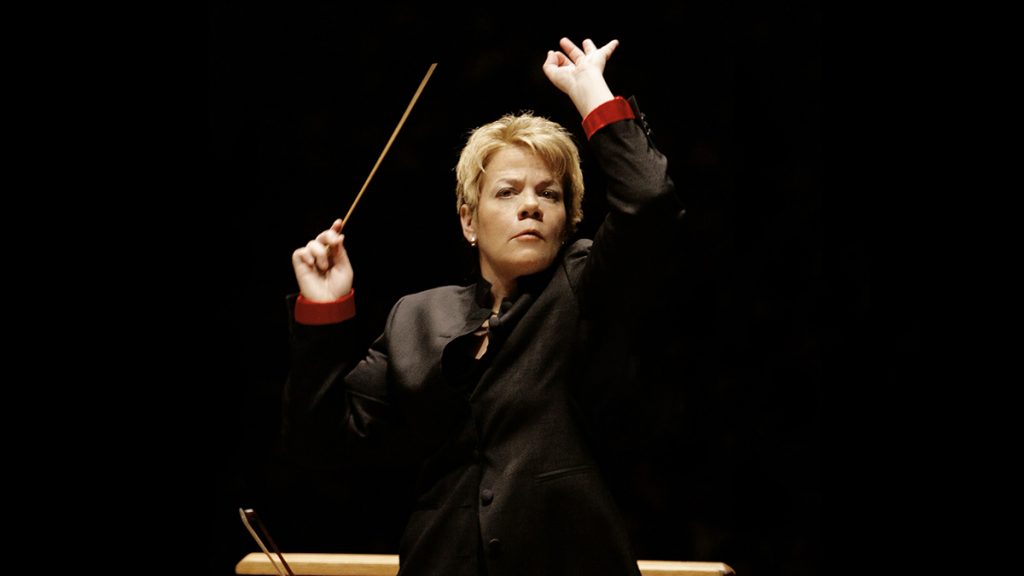
Marin Alsop
2003: The BSO’s first tour under Marin Alsop began, which also saw the BSO’s appearance at the Proms under Alsop
2004: The outdoor summer concerts had its most popular series so far, with around 65’000 people attending at venues such as Powderham Castle, Broadlands, Osborne House, Upton Country Park in Poole and Meyrick Park
2004: Facebook was founded
2005: The BSO performed two concerts at the Prague Music Festival and that summer the concerts (including two Daily Echo backed events with lasers, lights and fireworks) attracted record ticket sales
2007: Marin Alsop was awarded with a European Woman of Achievement Award
2008: Kirill Karabits became the Principal Conductor of the BSO after a unanimous vote by the musicians
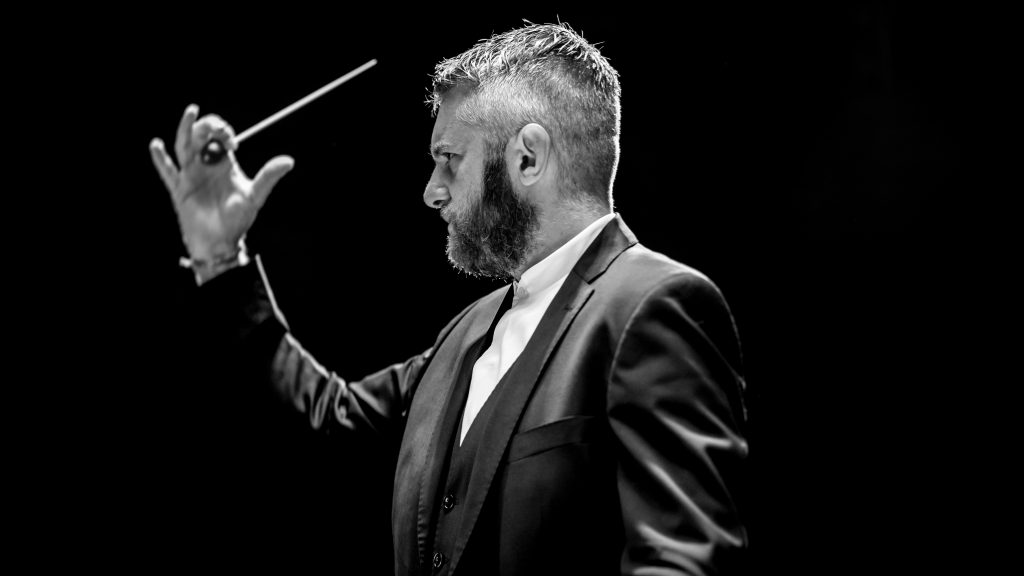
Kirill Karabits
2008: Barack Obama was elected as President of the United States, making history as the first black president
2011: Prince William, second in line to the throne, marries Kate Middleton at Westminster Abbey
2012: Dougie Scarfe joined the Bournemouth Symphony Orchestra as Chief Executive
2012: Britain celebrates the Queen’s Diamond Jubilee and hosts the Olympics in London
2013: Karabits was named Royal Philharmonic Society’s Conductor of the Year
2014: The BSO was declared World’s Favourite Orchestra by Bach Track
2015: The BSO performed under Karabits at the 120th BBC Proms
2015: Queen Elizabeth II becomes Great Britain’s longest-reigning monarch at 63 years and seven months, beating the previous record set by her great-great-grandmother, Queen Victoria
2017: BSO awarded ‘Dementia Friendly Organisation of the Year’ at the Alzheimer’s Society Dementia Friendly Awards
2018: The BSO became the first symphony orchestra in the world to have a disabled-led ensemble as a core part of its activities
